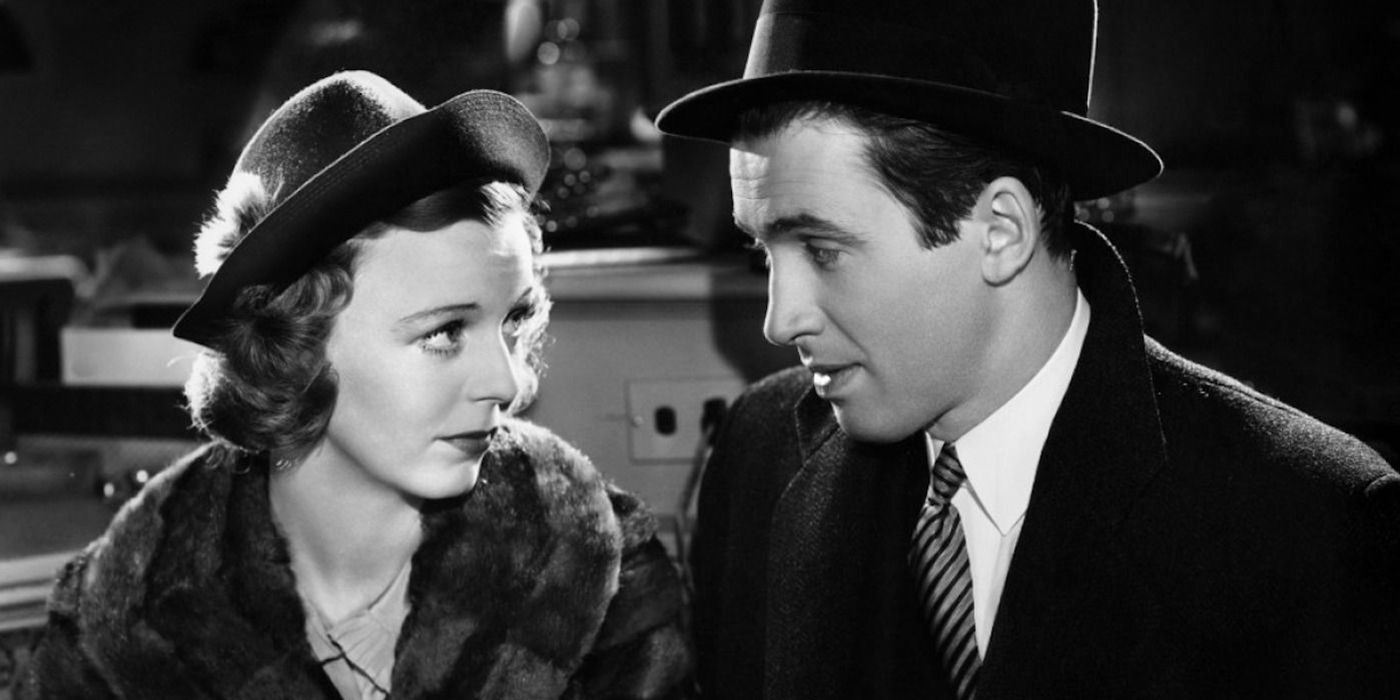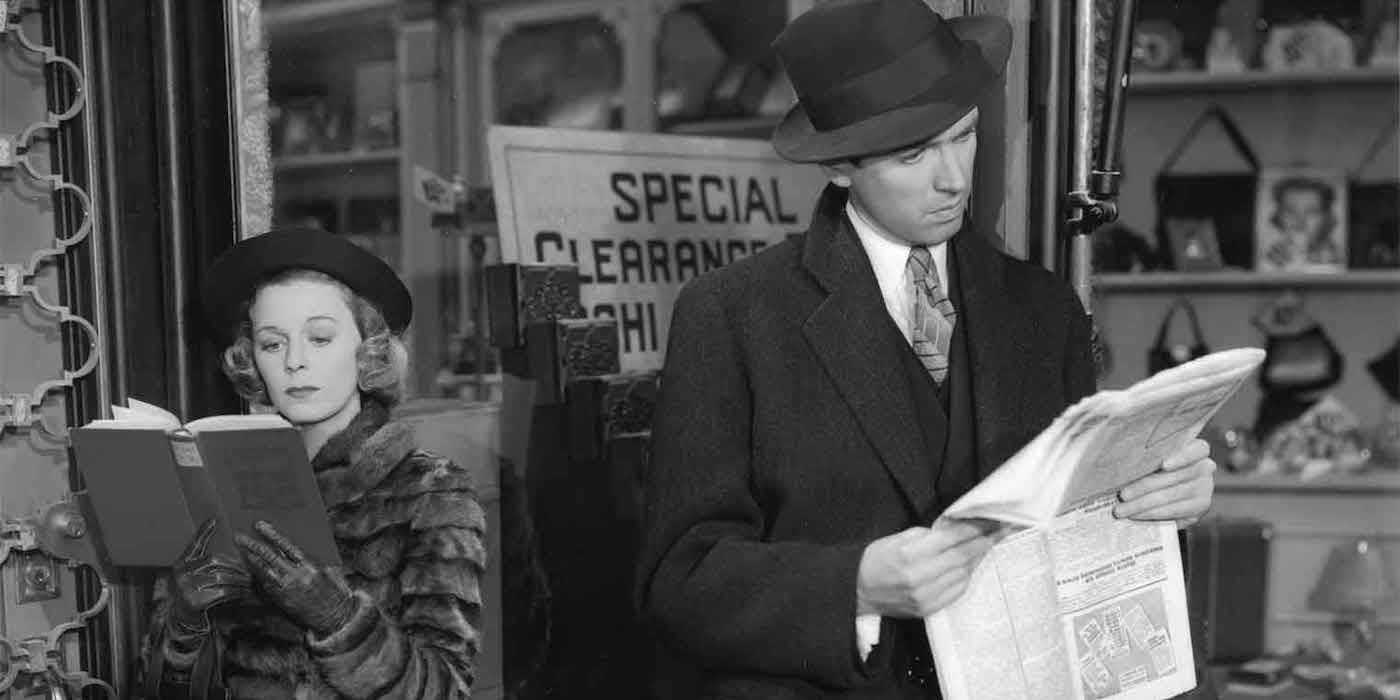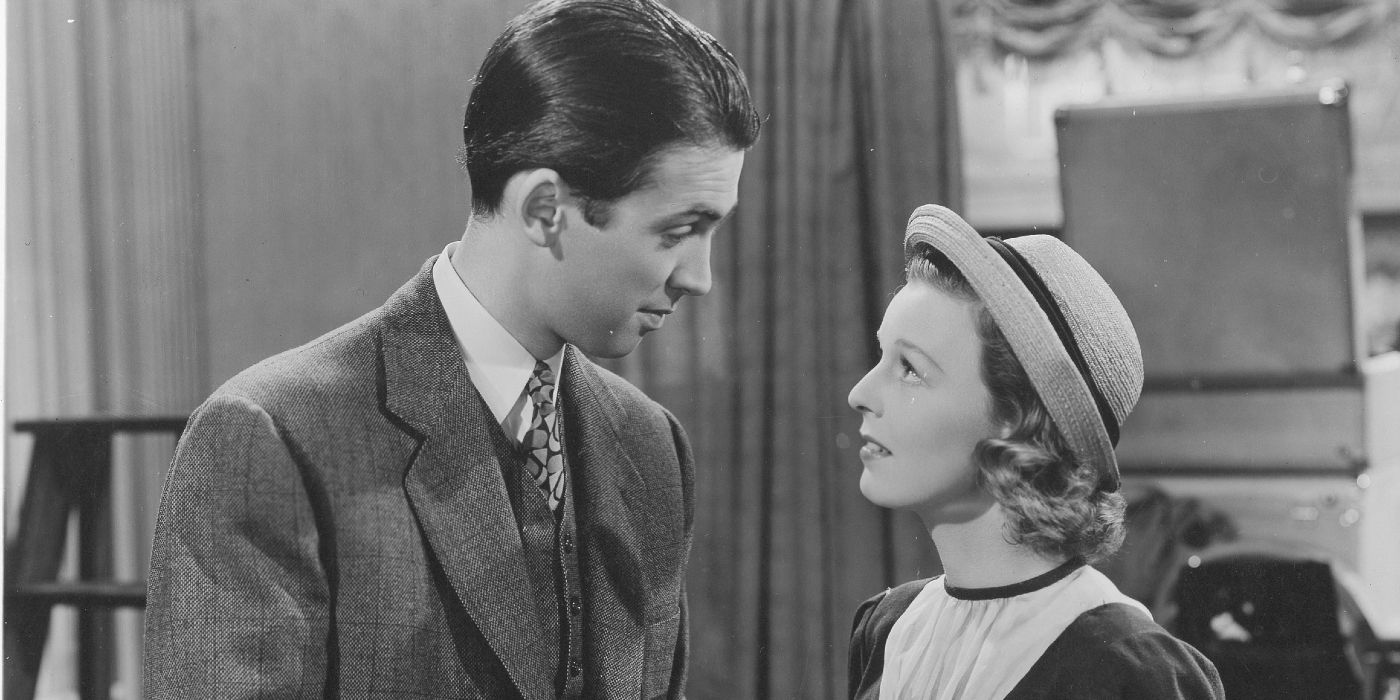The Big Picture
- The Shop Around the Corner is a forgotten Christmas movie that deserves recognition as one of the genre's best.
- The film is more than just a rom-com, emphasizing the dynamics of relationships within a small corner store.
- Like It's a Wonderful Life, the movie's final scenes on Christmas Eve highlight the value of community and the bonds we often overlook.
Click on any ranking of the greatest Christmas movies of all time, and It's a Wonderful Life is sure to be hovering near the top. And deservedly so. The concoction of Jimmy Stewart's everyman charm, Frank Capra's ruthless optimism, and a message that slices through even the most dense of skins like a knife through butter makes it the perfect film to watch with the family on Christmas Eve and be reminded of all the holiday represents. But another Christmas movie starring Stewart often slips through the cracks of the genre's canon, forgotten by many in the 80-plus years since its release, but relished by those who have kept it in their December rotation. The leading man teamed up with wry German director Ernst Lubitsch in 1940 and created The Shop Around the Corner. The movie may not have retained the same status as Stewart's more heralded Christmas classic released six years later, but the timeless holiday rom-com deserves to be kept in the same pantheon, and regarded as one of the best the genre has to offer.
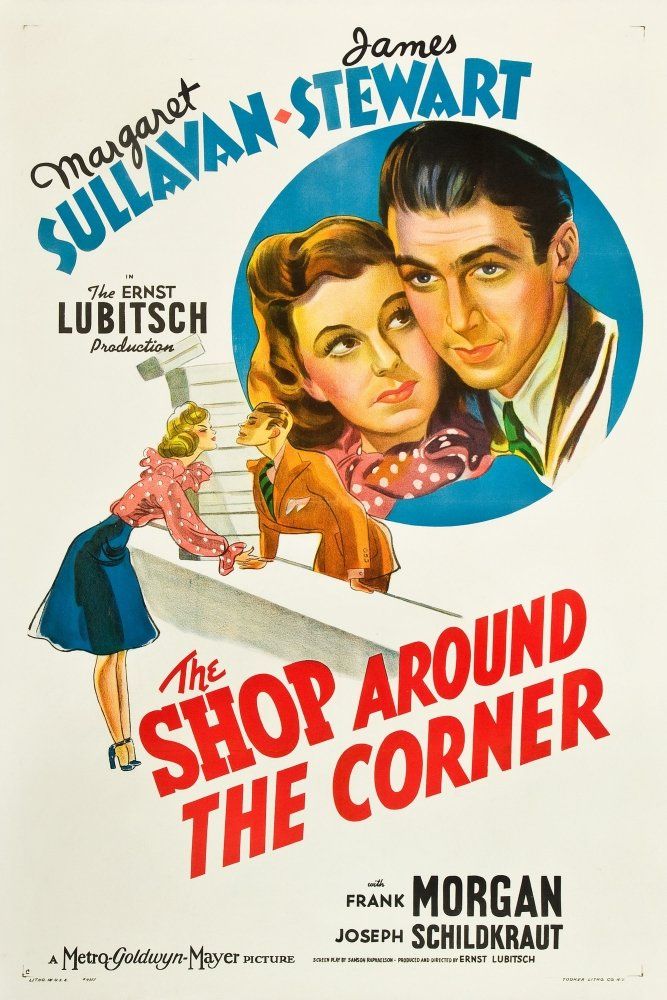
The Shop Around the Corner
Two employees at a gift shop can barely stand each other, without realizing that they are falling in love through the post as each other's anonymous pen pal.
- Release Date
- January 12, 1940
- Director
- Ernst Lubitsch
- Cast
- Frank Morgan , James Stewart , Margaret Sullavan , Sara Haden
- Runtime
- 99 minutes
What Is 'The Shop Around the Corner' About?
Adapted from a Hungarian play (the same source material for You've Got Mail for all you Meg Ryan enthusiasts out there), The Shop Around the Corner chronicles the events at a small corner store called Matuschek and Company in Budapest. Stewart plays Alfred Kralik, the shop's top salesman, who is engaged in a riveting romance in the form of correspondence with an unknown woman. Margaret Sullivan plays Klara, a peppy new saleswoman at the shop who butts heads with Stewart's headstrong character. She also happens to be deep in a correspondence relationship. The destination of the romance is evident for all to see from the very introduction of the premise, but you'd have to be clairvoyant to see the path it travels to get there.
The romantic connection is established early on, yet the key moment of romantic catharsis seems to be delayed at every turn. The "a-ha" moment is repeatedly put off, and the audience's anticipation of the euphoria of love is constantly dismissed. So with a romance that feels stagnated, minds wander to try and figure out a reason to keep eyes glued to the screen. With the love story present but choosing to take a back seat, what plot line is emerging to be the driver of the film's story. And for the answer to that question, one must only look as far as the film's title.
'The Shop Around the Corner' Is More Than Just a Rom-Com
In the very first scene, we are introduced to the staff at Matuschek and Company one by one. There is the soft-spoken but devoted Pirovitch, ambitious delivery boy Pepi, reserved clerk Flora, luxurious saleswoman Ilona, devious and widely disliked Ferencz, rigid but respected owner Mr. Matuschek, and of course Alfred. We meet all of these characters as they stand outside the corner store, engaging in early morning pleasantries before the shop opens up. We can surmise all of their personalities from just a five-minute sequence of the type of small talk encountered in an everyday setting. The store is centered as the focal point of all the action. Specific relationships between co-workers are prioritized over any individual person's plight. Alfred isn't even established immediately as the main character. He is not the first arrive to work, nor the last, and is given no warmer a welcome than anyone else (well, expect Ferencz). It's easy to overlook given the glitz and glam of romance contrasted with the mundanity of 9-5 work life, but the film is first and foremost about the characters who mold the titular location.
As the romantic parameters are defined, and then subsequently placed in limbo, each character ebbs and flows to their own tune, and the dynamics of relationships within the workplace constantly shift. Some bridges are fortified, some are burned. But all the office politics are seen as just that, monotonous little bonds and gripes workers have with each other that fluctuate solely within the realm of Matuschek and Company, understood as insignificant in the larger schemes of each of their lives. They don't interact with each other outside the shop, don't take their work friends and enemies home with them to fuse into their family life. The bonds formed inside the walls and windows of the shop are seen as negligible because the time spent together is forced. But when the love story and everything else outside the shop is up against the ropes, the bonds formed at Matuschek and Company remain strong. And that's what the more potent themes emerge.
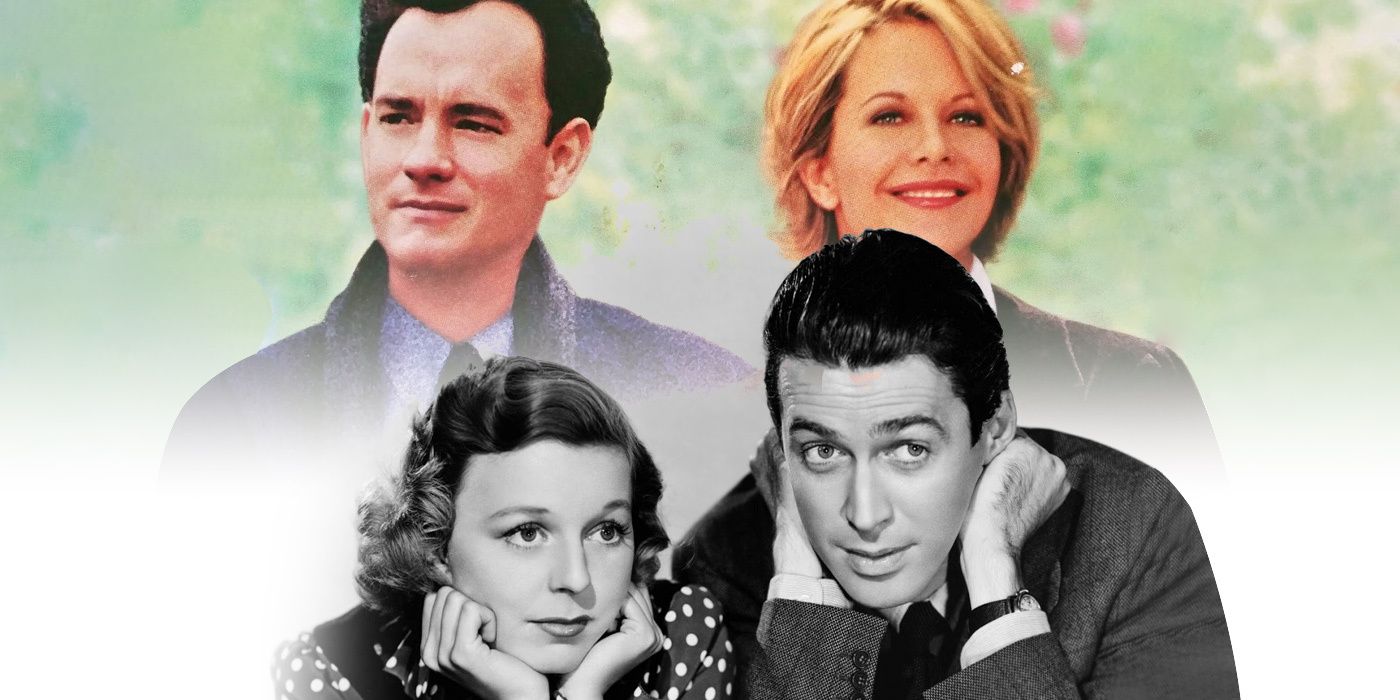
From ‘The Shop Around the Corner’ to ‘You’ve Got Mail’: Evolution of an Adaptation
Miklós László's play has been adapted by Hollywood three times, and each gives us insight into how the same story can resonate across many decades.What Makes 'The Shop Around the Corner' a Christmas Movie?
Much like It's a Wonderful Life, The Shop Around the Corner is only a Christmas movie insofar that its final scenes take place on the eve of the holiday. But those final scenes are an amalgamation of everything both films stand for. George Bailey learns that despite his life not going as planned, despite finding himself in a seemingly doomed situation, he still has value because he's been a good and generous man, and has a community who will come to stand by his side. Much in the same vein, those at Matuschek and Company learn how their bonds forged within the shop, bonds which were previously overlooked, mean much more than anyone previously gave them credit for.
In one of the film's final moments, as the workers lock up the shop's doors on Christmas Eve, Mr. Matuschek greets each employee as they head home to celebrate the holiday. He has nobody to spend Christmas with, and it's clear to the audience that he's trying to find someone to join him for a celebration, even if it's only a quiet one, just so he's not alone. He asks each person about their plans for the night, and who they're going home to celebrate with. Each of them answers gleefully, not able to see the subtext behind his comments. It's a heartbreaking moment, as it seems increasingly likely that the boss, who has just been so kind to his staff, will have to spend the holiday by himself. But finally, a new delivery boy, just introduced into the film moments earlier, walks out the door. Mr. Matuschek doesn't even know his name, but the two find that neither has another person to spend Christmas with, and excitedly go back to the boss's house to feast. It's a small moment of connection, but elation for the two characters who find a reprieve from their problems, bonding over a shared experience that would have weighed on their souls if they hadn't been willing to open up to each other at that very moment.
The Shop Around the Corner is a top-tier Christmas movie because it's a celebration of the community we often overlook. The film acknowledges how we try to look outside our own life to find fulfillment, think that nothing within our own everyday existence is remarkable enough to hold any worth. But after all the turbulence, we're able to realize that we're not sacrificing, not settling when deciding the people around us are all we need. Even the romance functions on the same level. It's not until all pretenses are broken down and stripped away that the two love interests realize that they were too blinded by the need for extravagance to realize the fulfillment they thought only existed in a world separate from their own was at their feet the whole time. The Shop Around the Corner slowly chips away at the expectations of both the characters and the audience to unmask the importance of everybody we often overlook, and celebrates them for always being right where we need them to be. And what could be a better Christmas message than that?
The Shop Around the Corner is available to stream on Max in the U.S.

